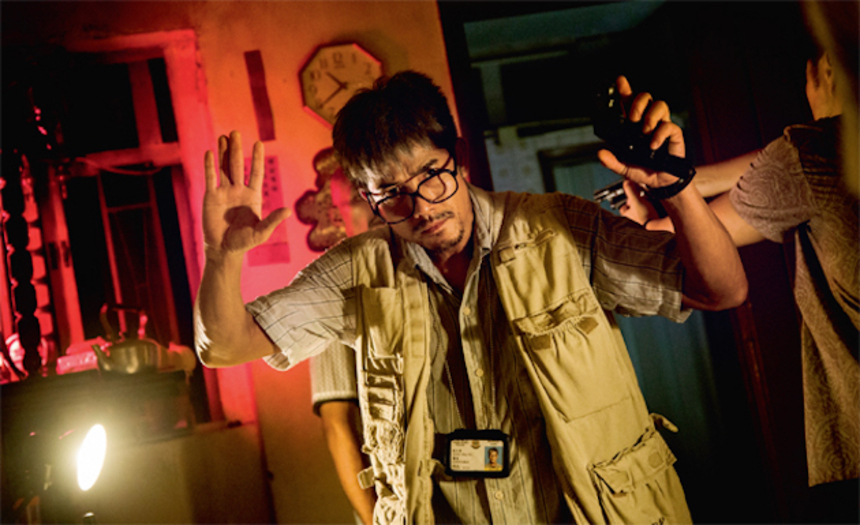Udine 2015 Review: PORT OF CALL Proves Philip Yung's Most Ambitious And Polished Film To Date

A seemingly routine investigation into the death of a 16-year old prostitute unexpectedly turns into an unnervingly nightmarish and heart-pounding ride through a seedy underworld of drugs, alcohol, and compensated dating, revealing layers and nuances in the backstory to a crime that's more complex than initially thought. Divided into four distinct chapters, which neatly encompass the film's central conceit, Port of Call continuously yet smoothly switches back and forth between three different time frames, thus uncovering a chain of events that lead to a particularly horrifying and depressing outcome.
Yung never judges his characters or their actions, but he doesn't offer them a chance at redemption, either. They're basically stuck in a never-ending cycle of chaos, mania, and violence. Even detective Chong (Aaron Kwok), initially the only positive character in the film and the only person desperately looking for the true motive behind Jiamei's (Jessie Li) grisly murder and dismemberment, begins to doubt his own sanity. While stubbornly digging deeper into the case, which itself perfectly accentuates the disturbingly dark atmosphere that permeates Yung's vision of modern Hong Kong, he finds himself trapped in a vortex of confusion and madness.
Two-time Golden Horse Award Winner Kwok (Divergence, After This Our Exile) undeniably boosts the film's commercial potential with yet another solid performance, but it's both Li and Michael Ning (as a delivery-man-turned-killer Ting Tsz-chung) who elevate the film beyond formula, tackling the wealth of meaty material with enough confidence and determination to ensure that, even at 120 minutes, the film doesn't overstay its welcome.
First-timer Li turns in a reserved but powerful performance -- reminiscent of Rinky Wai's Ying in Yung's equally memorable 2014 teen drama-thriller May We Chat -- as a young call girl trying to forget about past family-related troubles by indulging in many more or less controversial activities.
Ning, whose hollow and emotionless gaze can definitely make one shiver, is strangely terrifying in a role that can be very well described with only one simple word -- "villainous". And yet there are a few scenes and dialogue lines that underscore his more humane side, tastefully contrasting the negative and positive emotions associated with the character.
Legendary DP Christopher Doyle's sumptuous cinematography, saturated with deep grays and greens, makes Hong Kong look like a place where hopes and dreams are crushed. Doyle's lens constantly and convincingly suggests that this undeniably hi-tech but sleazy city reeks of blood, sweat and other bodily fluids at almost every step.
Port of Call's unobtrusive tonal shifts show that Yung took time to study his own work -- in this department his May We Chat had a few recognizable problems. Although gore is shown in all its glory onscreen, the "Category III" scenes feel surprisingly appropriate. The same can be said about the occasional chat bubble, a recurring element in Yung's films and an inseparable element of today's youth culture.
Although viewers hoping to see a conventional police procedural might be slightly turned off by the film's contemplative pace and its rather light treatment of the investigative element, they should nevertheless enjoy the utterly sombre atmosphere of some of its key sequences and the whole "where's the victim's body?" part.
Fairly unconventional narrative structure, topped with some seriously disturbing imagery, as well as impressive performances by the leading trio, which elegantly reflect the broad range of emotions depicted throughout the storyline, should satisfy both local and foreign audiences. That the film evidently opts for a universal approach to a controversial and undoubtedly timeless topic of prostitute murders might also help it travel.
With Port of Call Yung, who singlehandedly directed, scripted, and (partly) edited this acutely observed, noirish urban thriller, further proves he's one of the most talented and bold directors on contemporary Hong Kong film scene.

Do you feel this content is inappropriate or infringes upon your rights? Click here to report it, or see our DMCA policy.





